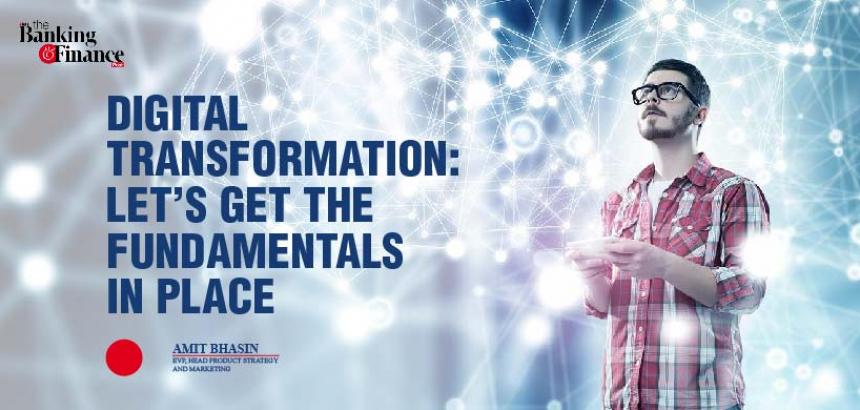In current era where business cycles are rapidly transforming, and digitisation being a common denominator, the variables for success that we convey to our clients are increasingly becoming acutely tied to their business sustainability plans and not limited to operational metrics in routine.
Within just one of our verticals – BFSI, with 9 out of top 10 private banks that we consistently work within India alone, we have realised that business imperatives have become more decisively a technology directive that we need to fulfil to ensure our clients and their customer success. With digital platforms and programs becoming waypoints for most organisations on their journey towards digital transformation, one thing is clear, no single path exists that will meet every institution’s needs.
In fact, in most cases, we have observed the choice is not in digital transformation itself but the degree or extent of risk that organisations are willing to take the journey. Startups and e-commerce platforms represent one skew of the platform with higher risk appetite and at the other end, traditional organisations and industries are scaling steps towards digitisation through DevOps, automation and customer experience programs.
Where is the balance? There is probably none and that probably speaks a lot about the conundrum that many sectors face in the next few years with the decisions they have to make. In our view, there will be only two best cases of sustainable businesses: born digital or re-born digital organisations.
With our global clients, digital transformation is an organisation’s wide phenomenon where the business fundamentals are also being looked at and deployments are broken into agile sprints. In the Indian context, while agile approaches are being adopted, the transformation is mostly being run through specific programs, with the obvious front-runner being automation. In both cases, the natural progression observed has been from digitisation to digital optimisation to digital business.
A key driver for a lot of consumer products and services organisations, like financial services, besides sustainable future ready business footprint, is customer experience. It is evident that experience is no longer just a differentiator but something that defines the business itself and is disrupting business models and created impending risk for traditional organisations.
One of the valuable lessons we have learnt through deep engagement cycle for digital transformation programs is that creating frameworks around key variables is critical to improving predictability of success. With no clear paths available these frameworks act as guidance maps for enabling right future outcomes and right-sizing of goals from the outset.
For example, our data science lab, advises clients to ensure a day zero data governance and data repository framework. As the use cases for analytics change the fundamentals around data will not, and framework for the same protects client interest in the long term. Further, most independent studies predict that almost 90 percent of organisations will be moving to hybrid cloud infrastructure by 2020.
This affects the fundamentals of any frameworks we build and design for our clients as we have a lesser risk of adoption. With the data logistics managed upfront, an organisation’s ability to mature any machine learning or artificial intelligence based decision analytics has a higher success ratio. With the fundamental premise of the framework in place, future agile adoption of technologies and use cases is possible and helps.
Another good example of creating predictable outcomes through robust frameworks is observed by us in banking. Globally ‘open banking’ norms are being adopted and this is not restricted to compliance but also better business practices where the underlying customer adoption cycle is being shifted to a more on-demand distributed architecture where banks and financial services organisations will have to serve the outcomes their clients desire at their convenience of platforms.
In India, we already have a multitude of partnerships between licensed banks and e-commerce players like Amazon, Flipkart, etc and also social platforms like Whatsapp and Facebook to seamlessly integrate a customer acquisition journey. In fact, the reverse is also happening where the born digital platforms are taking a bite into the traditional banking transactions through micro-lending and digital wallet platforms they have set up. Amazon has applied for an insurance license and Flipkart is predicting their lending products platform will account for 20 percent of their business.
Adopting a more holistic approach by investing in broader programs to re-invent, re-engineer and re-imagine business processes using the most appropriate technology adoption curve for business success is the best case scenario for any organisation.
Views expressed are personal opinion of Amit Bhasin, EVP, Head Product Strategy and Marketing, QualityKiosk Technologies.
Article first published in Elets Online



